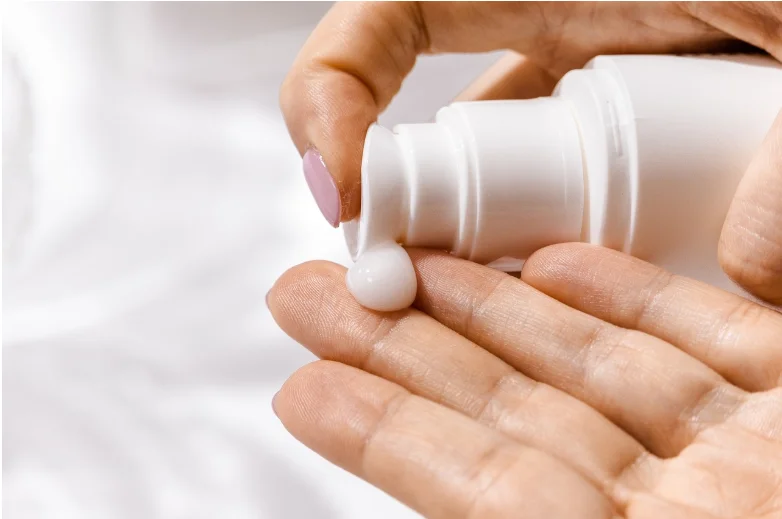Despite the pivotal role that sunscreen plays in thwarting sunburn, premature ageing, and skin cancer, many people are reluctant to incorporate it into their everyday skincare regimen. Fear of generating spots or triggering flare-ups deters some from daily sunscreen application. So, is this worry grounded in reality, or is it just another tall tale in skincare? If sunscreen indeed seems to cause spots, how can one rectify this issue?
Sunscreen & Spots: Debunking The Myth
The belief that sunscreen is a culprit for causing spots is largely based on misinformation. Getting to the bottom of this mystery requires a basic understanding of science. It’s not the sunscreen per se that causes spots. Rather, the issues typically stem from inappropriate product choice, incorrect application, or subpar skin cleansing routines.
Many sunscreens, especially older ones, had thick, greasy formulations that did not suit all skin types. If you chose a sunscreen with elements not compatible with your skin, like the dense mineral formulas on acne-prone skin, the chances of pores getting blocked and generating breakouts were high. However, a modern, natural sunscreen is non-comedogenic (non-pore-blocking), catering to all types of skin, whether dry, oily, or sensitive.
Spot formation can also be triggered by not washing off sunscreen properly at the end of the day. Like makeup, sunscreen requires effective removal to stop skin congestion. Residual sunscreen mixed with sweat, oil, and dirt can block pores, leading to spot creation. But this issue arises from poor cleansing, not the sunscreen itself.
Also, external factors like heat and humidity, which often necessitate sunscreen application, can enhance breakouts. Sunscreen is meant to protect, but these external elements occasionally cause skin reactions.
Proactive Spot Prevention with Sunscreen Usage
To truly relish the full advantages of sunscreen without the worry of spots, it’s crucial to incorporate the right skincare products and practices. Here’s how:
Select Sunscreen Suited to Your Skin
Sunscreens are not a one-size-fits-all product. Choose oil-free, non-comedogenic, lightweight, gel-based, or mattifying sunscreen formulas if you have oily or acne-prone skin. Fragrance-free sunscreens with soothing elements like zinc oxide or titanium dioxide are recommended for sensitive skin. A dermatologist or skincare professional can guide you if you’re uncertain about your skin type.
Incorporate Double Cleansing in Your PM Regimen
End your day, especially when wearing sunscreen, with a double cleansing routine for spotless skin. Start with an oil-based cleanser or micellar water to dissolve sunscreen, makeup, and other impurities. Follow up with a gentle water-based cleanser to get rid of any residue, leaving your skin invigorated.
Maintain a Balanced Skincare Routine
When using sunscreen daily, ensure your skincare routine includes products that boost your skin’s wellbeing. Add a lightweight moisturizer that doesn’t block pores and elements like niacinamide or salicylic acid to manage oil production and avoid breakouts. Minimise exfoliants to protect your skin’s natural barrier.
Address Breakouts Immediately
Treat spots with solutions like benzoyl peroxide or sulphur-based products as they occur. Refrain from popping spots to avoid scarring, and seek a dermatologist’s advice for persistent acne.
Elevate Sunscreen to Your Skincare Ally
Don’t let the fear of spots deter you from using sunscreen. Concentrate instead on finding the right product and sticking to a consistent skincare routine. The advantages of sunscreen far exceed the minor bother of finding the perfect formula. By debunking myths and adopting spot-prevention strategies, you can relish the assurance that your skin is safeguarded, smooth, radiant, and devoid of spots.
Empower yourself with a skincare routine that works for you. Turn sunscreen into your friend, not your foe. Step outside knowing your skin is protected and nourished.

